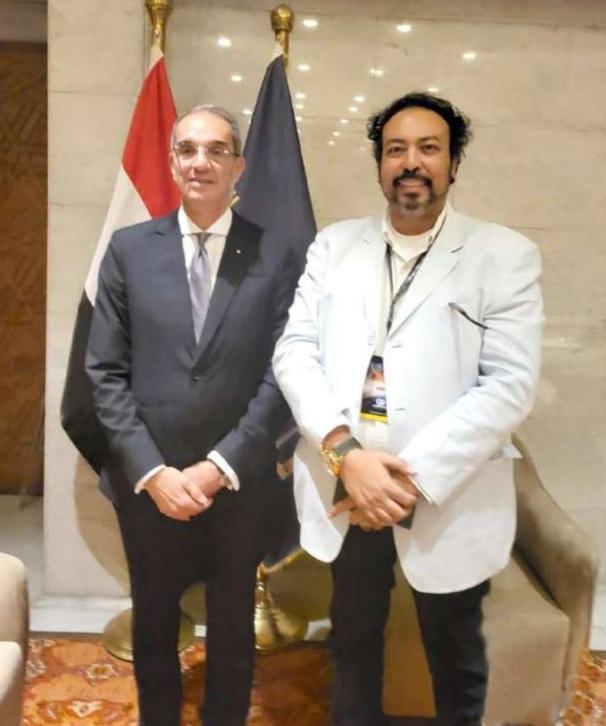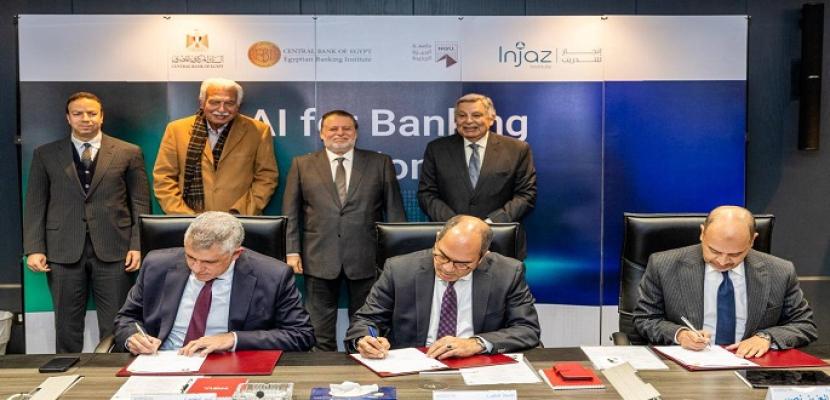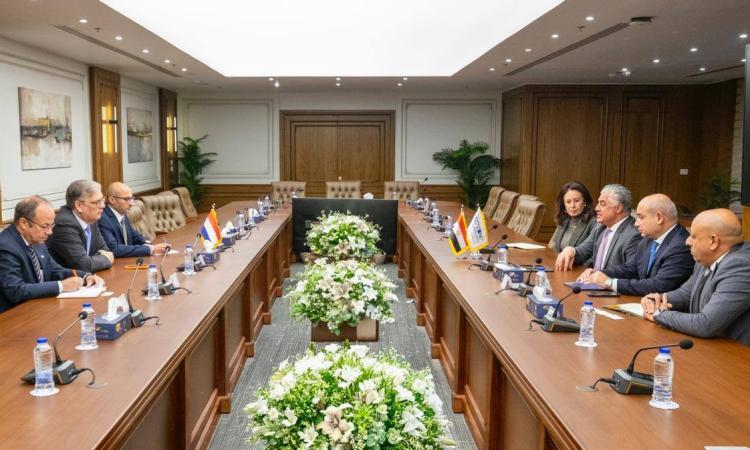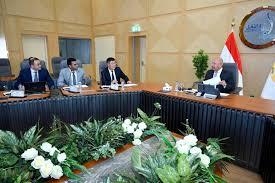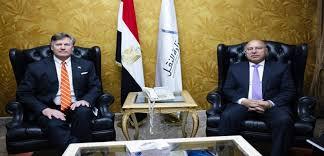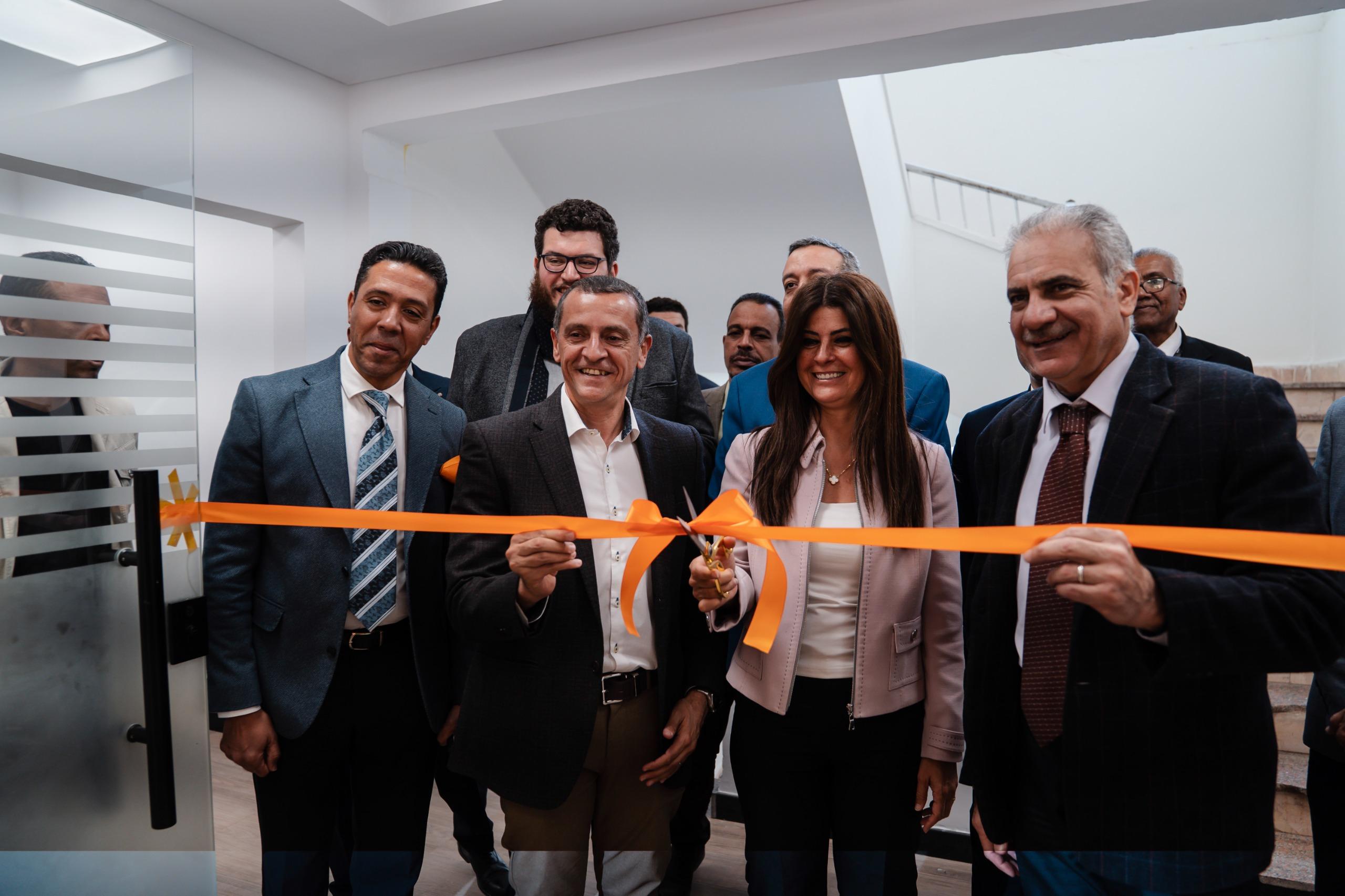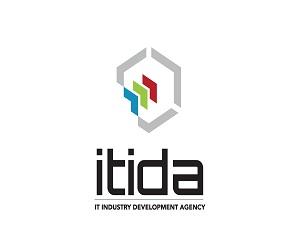Interview by: Khaled Hassan
Prepared by: Mohamed Essam
Dr. Amr Talaat confirmed that the Ministry of Communications and Information Technology, in response to a question from "Alam Rakamy " regarding the availability of the necessary infrastructure to attract international technology companies, especially in the governorates, has invested $6 billion over the past 8 years to develop the infrastructure. Digitalization has resulted in Egypt leading the African continent in internet speed for several consecutive years, and it also boasts the second lowest internet costs on the continent.
He added that Telecom Egypt's efforts are ongoing to connect 60 million citizens in 4,500 villages to its fiber optic network, enabling digital access throughout the country and allowing multinational companies to hire talent outside Cairo through remote work.
He explained that the reality is that many technology companies, outsourcing service providers, and call centers have offices in various governorates to leverage the human resources and expertise available there, as well as the strong telecommunications infrastructure. However, this does not negate the need to redouble our efforts in providing infrastructure access in all governorates. Archaeological Sites
In response to a question from "Alam Rakamy" regarding the Ministry of Communications' role in providing telecommunications and internet services at archaeological sites, Dr. Amr Talaat stated that, in coordination with the Ministry of Tourism and Antiquities and the Ministry of Environment, 20 mobile phone stations have already been installed. This provides mobile telecommunications and internet services to all visitors, especially tourists from abroad. This initiative falls under a cooperation protocol between the National Telecommunications Regulatory Authority (NTRA) and the Supreme Council of Antiquities, which aims to "provide and make telecommunications services available within the scope of Egyptian archaeological sites." The goal is to improve the efficiency of telecommunications services at archaeological sites and museums nationwide, while adhering to technical and environmental standards that ensure the preservation of the archaeological character and distinctive visual identity of these sites.
He added that the protocol aims to improve the coverage and quality of telecommunications services within archaeological sites by developing the infrastructure of telecommunications networks in cooperation with companies licensed by the NTRA. A joint executive committee has been formed between the two parties to monitor the implementation of the protocol and determine work priorities. The Minister of Communications affirmed that this protocol embodies the close cooperation between the two ministries to improve the level of communications services at archaeological sites, contributing to providing distinguished services for tourists. It also facilitates the availability of the Supreme Council of Antiquities' digitized cultural content on the "Digital Egypt Heritage" portal, enhancing efforts to utilize information technology in preserving and digitally accessing Egypt's rich cultural heritage.
The Minister of Communications noted that the Ministry launched the Digital Egypt Strategy in 2019, one of whose main objectives is to transform the communications and information technology sector from a service-oriented sector to a service-oriented and productive one. Efforts to achieve this objective included launching the Digital Egypt Strategy for developing the outsourcing industry, which aims to quadruple Egypt's contribution to the global outsourcing industry. This will position Egypt as a destination where global companies can find the talent, flexibility, and innovation that enable them to confidently achieve their global ambitions from Egypt to the world.
Dr. Amr Talaat pointed out that the contribution of the communications and information technology sector to the GDP has nearly doubled over the past decade, and the sector continues to grow at a rate three to four times faster than the national average. He explained that in the last fiscal year, the Egyptian economy grew by 4.4%, while the sector grew at rates ranging between 14% and 16%, reinforcing its position as one of the strongest drivers of the national economy.
He added that the Ministry provides digital capacity-building programs for nearly one million citizens annually to ensure their readiness for the digital economy. He explained that the availability of a broad base of qualified professionals providing IT services in multiple languages is an enabling factor for companies, allowing them to expand rapidly and ensure business continuity.
Dr. Amr Talaat reiterated the commitment of the Ministry of Communications and Information Technology, the Information Technology Industry Development Agency (ITIDA), and all affiliated entities to provide channels for direct and continuous communication with investors at all stages of development, from establishment to growth, to offer full support and facilitate coordination with various government agencies.
Dr. Amr Talaat pointed out that Egypt's competitive advantages, which combine qualified human resources, advanced digital infrastructure, and a strategic geographic location, translate into a high level of competitiveness in providing world-class digital services at competitive operating costs. He added that Egyptian talent is characterized by professional stability and the ability to provide cross-border IT services in several languages. He also noted that the ministry has launched incentive packages that reward expansion, encourage export-oriented activities, and support operations in various outsourcing fields, thus consolidating Egypt's position as a strategic partner for growth.
